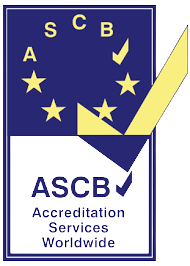Table of Content
Introduction
If you’re an HR professional or a talent manager, it’s important to learn steps for nurturing talent within the organisation. It helps you manage the deployed manpower, coach and mentor them well. You can extract the best potential out of these people in your organisation with the right tools, practices, and initiatives.
Moreover, management always wants to optimise the cost to the company. Thus, training and coaching talent is one of the smartest ways to cut down the cost to hire new people. When you, as a talent manager and reporting manager, nurture the talent you onboard, they relate to the culture more.
Employees consider employers as a top choice when they find they’re heard, respected, and valued at all times. More than that, if you can carve a path of growth for them in your team, they will definitely stay back in your firm for a longer than expected period.
So read the post ahead and find valuable insights on the right steps to initiate for nurturing the talent you hire.
Also read: How to Form a Winning Talent Mobility Program?
Want to skip the post?

What are the steps to nurturing talent within the organisation smartly?
- Identifying Talent Gems
Unlocking the potential of your team begins with astute talent identification. A strategic approach involves assessing skills, strengths, and hidden potentials. Utilise performance metrics, feedback mechanisms, and skill assessments to pinpoint individuals who stand out. This proactive identification sets the foundation for targeted talent development.
- Tailoring Personalised Development Plans
One size does not fit all in the realm of talent development. After identifying key talents, create personalised development plans tailored to individual aspirations and organisational goals. This bespoke approach ensures that employees are engaged and motivated, fostering a sense of commitment and loyalty.
- Providing Continuous Learning Opportunities
The modern workforce thrives on continuous learning through eLMS and LXPs. Develop a culture that encourages and supports ongoing education. Whether through workshops, online courses, or mentorship programmes, the goal is to keep employees on the cutting edge of industry trends. This commitment to learning not only enhances individual skills but also contributes to the overall growth of the organisation.
- Cultivating a Positive and Inclusive Environment
A positive and inclusive workplace culture is the breeding ground for talent growth. Foster an environment where diversity is celebrated, ideas are welcomed, and collaboration is encouraged. Such an atmosphere not only attracts top-tier talent but also retains and nurtures existing stars, creating a cycle of excellence.
- Recognition and Rewards System
Acknowledgement is a powerful motivator. Implement a robust recognition and rewards system through our social intranet that highlights and celebrates achievements. This can range from public praise to tangible rewards and career advancements. Recognising talent not only boosts morale but also communicates the organisation's commitment to valuing and fostering individual growth.
- Feedback for Continuous Improvement
Constructive feedback is the compass for talent development. Establish a feedback loop for different individuals that you can find in the 9-box grid and facilitate regular communication between employees and management. This two-way street allows for the identification of strengths, areas of improvement, and career aspirations. Such insights guide the continuous refinement of development plans, ensuring a dynamic and responsive talent-nurturing process.
Conclusion
Nurturing talent is not a one-off task but an ongoing process that demands strategic planning and commitment. By implementing these six steps using a future-ready and people-first HRMS software India, your organisation can unlock the full potential of its workforce, driving innovation, productivity, and sustained success in the ever-evolving business landscape.
FAQs
How can I identify talent within my team effectively?
Utilise performance metrics, conduct regular skill assessments, and encourage open communication to identify standout individuals with unique skills and potential.
Why is a personalised development plan essential for talent growth?
A personalised development plan ensures that employees' aspirations align with organisational goals, creating a more committed and motivated workforce.
What role does continuous learning play in talent development?
Continuous learning keeps employees abreast of industry trends, sharpens their skills, and contributes to the overall adaptability and innovation capacity of the organisation.
How can a positive and inclusive workplace culture impact talent nurturing?
A positive and inclusive culture attracts, retains, and nurtures talent by creating an environment where diversity is celebrated, ideas are valued, and collaboration is encouraged.
What elements should be included in a recognition and rewards system?
A robust system should include public praise, tangible rewards, and opportunities for career advancement, all aimed at acknowledging and celebrating employees' achievements.
Why is feedback important in the talent development process?
Constructive feedback provides valuable insights into employees' strengths, areas of improvement, and career aspirations, guiding the continuous refinement of development plans.
How can organisations ensure the success of mentorship programmes?
Successful mentorship programmes involve pairing individuals strategically, fostering open communication, and creating a supportive environment for knowledge exchange.












